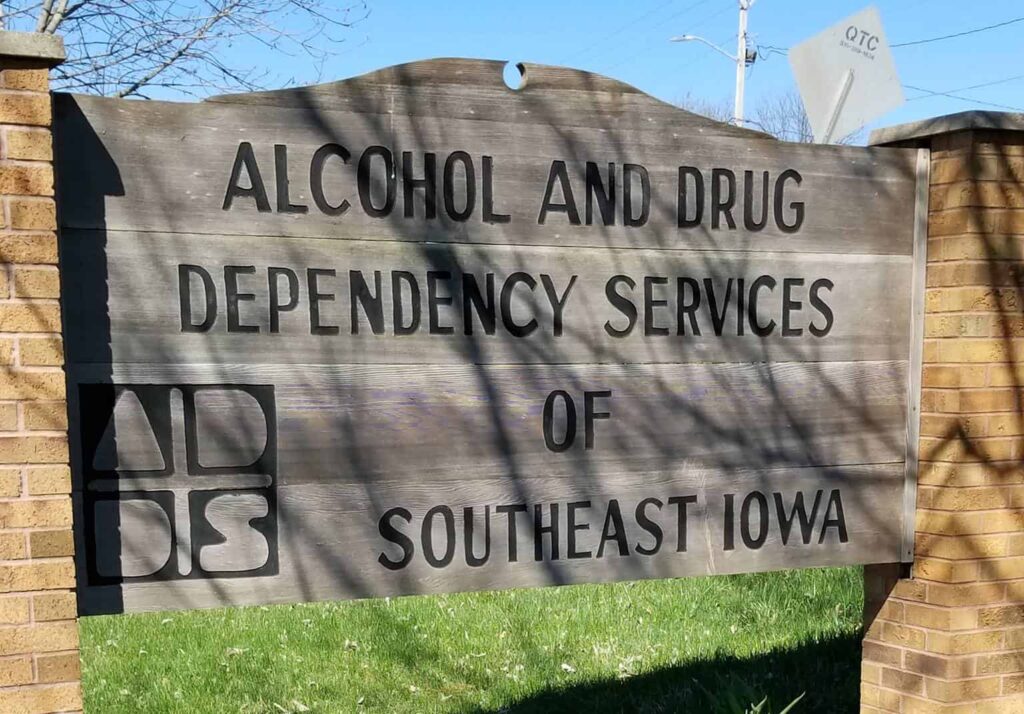The Challenge
Alcohol and Drug Dependency Services (ADDS) is a member and stakeholder of the Integrated Behavioral Health Network (IBHN), an Iowa network of behavioral health agencies working together to improve care quality, patient experience and clinician work environments while also reducing total cost of care. IBHN was connected to Bamboo Health after the Iowa Health Information Network (IHIN), the official statewide health information exchange, partnered with Bamboo Health to provide real-time notifications and critical patient context to treating providers within IHIN’s network.

One of our biggest goals is to help prepare our agencies for value-based care success. Pings™ is a no brainer in terms of a tool that allows our agencies to effectively manage vulnerable populations, collaborate on care plans and engage their patients. In fact, I have proposed that all members of IBHN get on the Pings platform.
Jessica Jankowski COO of IBHN
The Solution
ADDS implemented Pings in to get real-time notifications and insights on patient care events occurring across the continuum. The Bamboo Health team worked closely with ADDS’s Associate Director for Treatment Services, Nicolas Foss, to ensure the Pings platform was seamlessly implemented across the ADDS team. Bamboo Health team members provided onboarding and training to ADDS and helped rollout daily workflows within the platform that best fit the ADDS teams’ needs. This included creating customizable filters that highlights the patient information most critical to their care coordination goals. Foss elects to receive email notifications for Pings (SMS and notifications through the Pings web application are other options for him and his team).
As ADDS’s point person for coordinating with Bamboo Health, Foss easily creates filters for real-time notifications he and his team need to track care events outside of their facility, including different combinations of tags such as “high utilizer,” “high risk,” “pregnant,” “injection drug use” and specific mental health diagnoses. Below is an example of the teams’ daily workflows using the Pings tool:
- ADDS receives a Ping in real time via email of a client with substance use disorder (SUD) discharged from the emergency department (ED) with a new mental health diagnosis.
- The Associate Director for Treatment Services reviews the client’s care encounter, accesses the client’s care team (PCP, recovery coach and counseling supervisor) contact information in the Pings platform and makes outreach to all stakeholders to inform them of the client’s recent care encounter.
- The ADDS Associate Director and client’s care team quickly collaborate on a proper care plan for the client, and the recovery coach reaches out to the client via phone.
- The recovery coach connects with the client and determines next steps in their care and recovery journey, including scheduling follow-up care appointments at ADDS to discuss entering inpatient care.

The Impact
Pings Helps Male Client With SUD Enter Inpatient Care
ADDS received a Ping for a male client in his 30s who was discharged from the ED. While reviewing the Ping, ADDS found that the patient had been at the ED as a consequence of his use of alcohol and opioids. The Ping was forwarded to the client’s counselor and recovery coach and when they called him at his home, he was intoxicated, dissociating and in need of immediate care. The recovery coach called the police to check in on him and he was taken back to the hospital. ADDS has been working with him ever since and the client has successfully completed detox and is currently in inpatient care.
Mental Health Diagnosis Surfaced in Pings Helps Pregnant Client Obtain Needed Care
ADDS received a Ping for a pregnant client who uses drugs and had received a suicidal ideation diagnosis along with additional mental health diagnoses upon discharge from the hospital. The Ping was forwarded to the client’s counselor and recovery coach, who then performed outreach. Upon speaking with the client and reviewing her treatment options, the team decided that inpatient treatment was necessary. The patient was brought in to an inpatient facility where she has been receiving care since.
By implementing Pings, the ADDS team receives the necessary real-time visibility into their clients’ ED and other acute care events. With these real-time insights, the ADDS team can proactively schedule follow-up visits as needed to ensure clients receive the proper care and treatment services. This enables ADDS to improve patient engagement efforts and prevent potential admissions and readmissions to the ED. Moreover, while ADDS is not currently participating in any value-based contracts, they are now better suited to do so by having the ability to produce data showing quality outcomes directly from the Pings platform for their high-risk clients.

It’s not enough just to provide counseling services; we need to be able to aggressively engage our clients to understand their care utilization and needs outside of our center. Pings gives us actionable intelligence in real time so we can provide the best quality care to our clients.
Nicolas Foss, MS, IADC, BACC, ICGC-II Associate Director for Treatment Services
About Alcohol and Drug Dependency Services
Alcohol and Drug Dependency Services is a private non-profit organization licensed by the Iowa Department of Public Health to provide prevention, SUD and problem gambling services across four counties in Southeast Iowa since 1980. ADDS consists of roughly 40 employees ranging from support staff, peer recovery coaches, counselor aides, counselors, prevention specialists, and administrators who serve over 1,200 clients a year. ADDS’s client base consists of a wide range of medically complex individuals often with behavioral health comorbidities, many of whom frequently use the ED for care. Prior to Bamboo Health, ADDS could not identify their clients’ ED utilization before or after an ADDS appointment unless the client mentioned it, affecting their ability to follow up post-discharge and ensure continuity of care and patient engagement.
About Bamboo Health
Bamboo Health empowers healthcare organizations to improve behavioral and physical health outcomes through the most powerful care collaboration network with Real-Time Care Intelligence™. By providing real-time insights during pivotal care moments, clients are enabled to perform life-improving actions and deliver seamless, high-quality and cost-effective whole-person healthcare. From coast to coast, Bamboo Health partners with five of the six major pharmacy chains, 52 states and territories, 100% of the top 10 best hospitals and more than half of the country’s largest health plans to improve more than 1 billion patient encounters annually.



